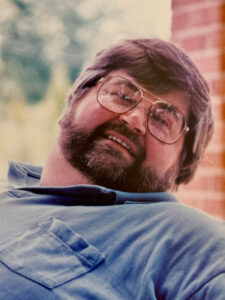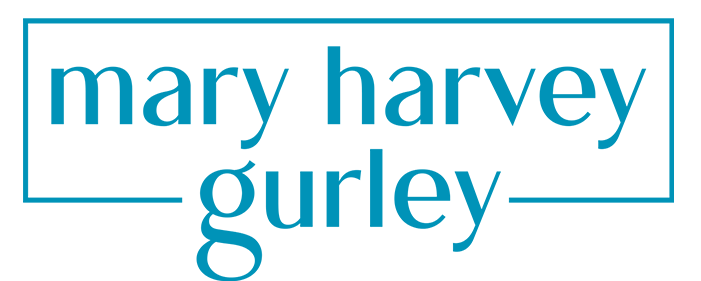Navigating August: A Journey Through Memory and Loss
On August 13, 2001, I walked into my home at about 7:45 and found my beloved husband, Paul, dead in his chair. At first, I thought he was asleep and tried to wake him. In the next few moments, reality set in; he was dead. There are no words that can express how those moments felt; I will not attempt to try the overwhelming pain as I called 911.

August is a tough month for me. It brings back memories of loss and heartache that still feel raw. Paul was a well-known and respected political and business leader in Memphis, and his death was front-page news the following day. I had one TV anchor call and asked if he could put it on the 10:00 pm newscast. I told him not all his family knew yet, and I begged him not to air it that night. A friend of Paul’s took it upon himself to alert the media to Paul’s death as he was driving to my house. This left me with no privacy to process my grief. That first week is a blur of funeral arrangements, family issues, and just trying to get through each day.
Funerals reveal both the best and worst in people. When the services were over, I thought I could finally be alone with my thoughts, but the quiet turned into fear as night fell, leaving me terrified to be alone in our large home on two acres in the middle of the city.
I moved to his side of the bed and sat in his chair, trying to feel his presence. I tried to grasp the sudden, heartbreaking reality that the only man I ever loved was gone. The days leading up to August 13 weigh heavier on me than the day itself.
Then, three weeks after Paul died, the world seemed to tilt on its axis again with the tragedy of 9/11. It felt like I was spiraling into a deep abyss of uncertainty, where the personal loss I was already grappling with was compounded by a collective grief and fear that enveloped the entire nation. I felt so alone in a changing world.
During those early days, I was fortunate to have an excellent therapist and friends who supported me, providing a lifeline as I navigated the choppy waters of mourning.
Financial difficulties added another layer of stress to an already overwhelming situation. Paul had been the primary breadwinner, and his income was much higher than mine. We had a small amount of life insurance, but I was terrified of losing the house we had built our lives in. The stock market crash had already cut our investments in half, and I feared what each day might bring.
I attended grief recovery programs, seeking solace and understanding in the company of others who were also on their journeys of loss. These programs helped me process my grief, providing tools and perspectives that gradually lifted me from the daily terror I felt.
When I returned to work a month later, I often sat in my office in tears for most of the day. I was surrounded by the routines and responsibilities that had once felt normal, but everything had changed. As the weeks passed, I noticed that people around me began to return to their lives, their focus shifting back to the usual ebb and flow of daily existence.
One of the first difficult lessons I learned during this time was that the circle of friends we had cultivated over the years were primarily his friends, his lifelong connections. Although I had always enjoyed their company, I realized I was now a fifth-wheel widow—a status that left me feeling isolated and out of place. The social gatherings and events that had once been a source of joy now served as painful reminders of my altered reality. This realization deepened the loneliness I felt as I grappled with not only the loss of Paul but also the loss of a social network that no longer seemed to have space for me. It was a stark reminder of how intertwined our lives had been and how much of my identity had been tied to our shared experiences.
As if grappling with grief and financial uncertainty wasn’t enough, I soon faced another challenge: family dynamics. Despite the modest life insurance payout and my struggles, I had family members asking for money. His family understandably wanted their heirlooms back, and while I had no issue with returning everything, it hurt deeply that they asked during the days between his passing and the funeral.
I finally had to express to a member of his family that the only thing I wanted was my wedding ring. Those first months were a haze of sorrow and confusion as I stumbled through fall and winter, crying through every holiday.
Christmas was his favorite time of year, a holiday we always celebrated extravagantly. Without him, the festive spirit was replaced by a profound emptiness.
In February, I decided to leave town for a while. I visited the beach and met old friends whose companionship helped renew my spirits. During that trip, I realized I needed to reinvent my life completely. I was now single, with limited assets and an uncertain future.
I understood that I needed to sell our home, downsize, and figure out how to navigate the world as a single woman in a predominantly married society. This was not just a practical decision but a necessary step towards rebuilding my identity and creating a life that was indeed my own. Six months to the day after Paul’s passing, I met my best friend, Cass. She had just moved to Memphis, and through a mutual connection—her now ex-husband, whom I knew—I found a lifeline. The two recognized a wounded soul and became my incredible support system. Her husband offered invaluable advice on financial issues while Cass guided me through the process of rebuilding my life.
They gave me more than just practical help; they provided a social life, structure, and a renewed sense of being. Despite the dire housing market, which took months to sell our home, their support made those challenging days more bearable. My bank account was shrinking, and I lived in constant fear of something breaking in the old house, adding to my stress.
Finally, after what felt like an eternity, the house sold. I moved across town to a beautiful new home, beginning a new chapter in my life. This move was not just a change of scenery but a significant step towards reinventing myself and creating a future that felt hopeful and open to new possibilities.
Throughout this journey, I found solace and clarity in making lists. I’ve always been a list maker, and during this time, my lists seemed endless. They became a lifeline, helping me organize the chaos and make sense of the overwhelming tasks ahead. I meticulously cataloged items to give away, sell, and plan for my new space, finding comfort in the small victories of each checked box.
With every item I released, I felt a little lighter, a little more in control. My new home gradually began to take shape, reflecting my evolving identity and the fresh start I was crafting for myself. At the same time, I started excelling at work again, reclaiming my professional confidence and purpose. Each day was a step towards rebuilding my life, fueled by determination and the unwavering support of friends like Cass. This period marked a pivotal point in my journey as I transformed grief and uncertainty into growth and resilience.
Now, 23 years later, I still look back at the nightmare that began the night Paul died. So many difficult events unfolded in the aftermath of his death that I could hardly keep up with the waves of change and challenge. Moving and starting fresh was a welcome break, a necessary step in carving out a new path for myself.
One common misconception people have is that after the first year following a spouse’s death, you should have moved on. But those who haven’t lost the love of their life can’t truly understand the depth of such a loss. In comparing notes with other women who have walked this path, we all share the understanding of the gigantic hole their deaths leave in our lives. It’s not something you ever truly get over, but you learn how to live with it. Grief becomes a part of your story, a thread woven into the fabric of your life.
I’ve found strength and resilience in the connections I’ve made with others who understand this journey. Together, we navigate the complexities of loss, learning to honor our past while embracing the possibilities of the future. Each day is a testament to the enduring love we carry and the lives we continue to build.
I’ve had the privilege of counseling many new widows on how to survive the tumultuous journey following the death of a spouse. I call it “Widowhood 101,” a heartfelt endeavor to share the lessons I’ve learned and offer guidance to those navigating this challenging path. I’ve even developed a guide on how to handle widowhood, drawing from my own experiences and the insights gained from connecting with others. This guide is a resource for those feeling lost and overwhelmed, offering practical advice and emotional support for the days when the road ahead seems uncertain.
I want to empower widows to find their strength and resilience, honoring their past while forging a new future. This journey requires courage, patience, and self-compassion but can also lead to profound growth and transformation.
As I reflect on these 23 years, I’m reminded that while grief is a part of my story, it doesn’t define me. I’ve learned to live with loss, embrace change, and find joy in the present moment. In doing so, I continue to honor Paul’s memory and the love we shared, carrying it with me as I move forward.

